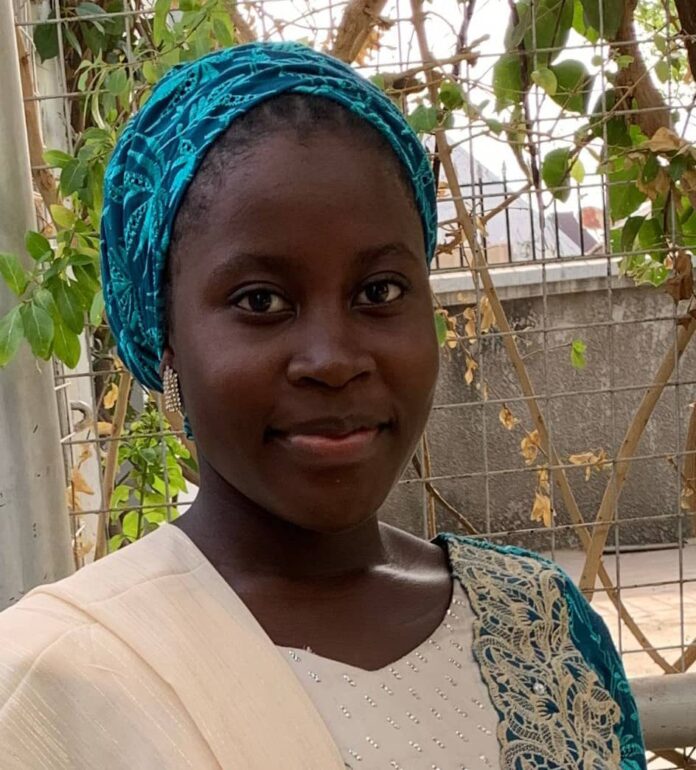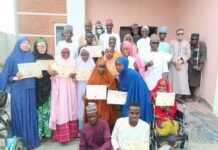Happily Standing for the Nigerian Girl-Child
By Hassana Suleiman Kandi
Every year on October 11th, the International Day of the Girl Child is celebrated to highlight the inequalities faced by many girls, including female genital mutilation (FGM), early marriages, and domestic violence. It is a day dedicated to raising awareness of the constraints on the rights and safety of girls worldwide, emphasizing the urgent need to address these systemic challenges.
The existence of human life depends on the equal participation of both men and women. While this balance is essential for the survival and development of societies, the struggle for women’s rights has been ongoing for centuries. In many parts of the world, girls and women continue to face discrimination, marginalization, and abuse.
Despite global efforts, the fight for gender equality remains a work in progress. While equality and freedom are enshrined in various national and international laws, the harsh reality is that female rights continue to be violated across the globe.
The Universal Declaration of Human Rights (1948), the Convention on the Elimination of All Forms of Discrimination Against Women (CEDAW, 1979), and the Beijing Declaration and Platform for Action (1995) are just a few examples of international agreements that guarantee women equal rights with men.
Yet, in practice, these rights are frequently disregarded, leaving millions of girls trapped in cycles of inequality. The journey toward achieving justice for women is fraught with obstacles, including illiteracy, cultural barriers, and lack of political will to enforce these laws.
According to the World Health Organization (WHO), one in three women globally experiences physical or sexual violence, while 200 million girls have undergone female genital mutilation (FGM). These statistics reveal the grim reality faced by many women whose voices are silenced, their rights and freedoms denied.
For many girls in Nigeria, their futures are shaped by societal expectations rooted in superstition, tradition, and rigid cultural beliefs. In northern Nigeria, the issue of early marriage is particularly prevalent, with girls often forced into marriages at young ages, depriving them of education and opportunities for personal development.
These young girls are thrust into roles they are neither physically nor emotionally prepared for, leading to a range of complications, including health risks, mental health challenges, and social isolation.
For instance, Fatima, a young girl from Kano, was married off at the age of 12 in 2022. She was forced to leave school and take on the responsibilities of running her husband’s household.
Her early marriage subjected her to early pregnancy and childbirth, which carried significant health risks. Fatima’s case is a poignant example of how early marriage deprives young girls of their potential, limits their future, and exposes them to a lifetime of hardship. In other regions of Nigeria, the girl child faces additional challenges.
Read Also:
In the South, West, and East, issues such as child labor, limited access to healthcare, female genital mutilation, child trafficking, and harmful widowhood practices persist. Cultural norms often restrict girls’ autonomy, curtailing their education and limiting their career opportunities. According to UNICEF, 43 percent of Nigerian girls are married before the age of 18, and 17 percent undergo FGM.
Moreover, the WHO reports that 30 percent of Nigerian women experience physical or sexual violence. These figures underscore the urgency of addressing the systemic abuses that Nigerian girls endure. However, various organizations are working tirelessly to break the cycle of oppression and provide girls with the tools they need to succeed.
Organizations such as UNICEF, the Nigerian Women’s Rights Organisation, the Kano State Ministry of Women Affairs and Social Development, UN Women, and Human Rights Watch are at the forefront of this fight. They are committed to empowering girls by advocating for their rights, providing access to education, healthcare, and supporting survivors of violence.
These organizations recognize that ensuring a brighter future for the girl child requires a multi-faceted approach. One crucial aspect of their work involves strengthening laws against child marriage and FGM.
Legal frameworks must be enforced to prevent the exploitation of girls and ensure that violators are held accountable. Stronger legal protections are critical to stopping these harmful practices and providing justice for those who have suffered.
By criminalizing child marriage and FGM, these organizations hope to reduce the prevalence of these violations and empower girls to take control of their own destinies. Increasing access to education and healthcare is another vital component of ensuring the girl child’s future. Education equips girls with the knowledge and skills needed to break free from the cycle of poverty and exploitation.
It is also essential for promoting gender equality, as educated girls are more likely to become empowered women who can advocate for their rights. Healthcare services are equally important, as they provide girls with the medical support they need, especially those who have undergone FGM or experienced early pregnancies. Supporting survivors with counseling and economic empowerment is another area of focus.
Many girls who have experienced violence or abuse face significant emotional and psychological challenges. Providing counseling services helps these survivors heal from their trauma and rebuild their lives.
Additionally, economic empowerment programs offer women and girls the opportunity to become financially independent, reducing their vulnerability to exploitation.
To ensure a better future for the girl child, collective action is needed. Governments must prioritize policy reforms that protect girls’ rights and invest in initiatives that address the root causes of gender inequality.
Communities also have a vital role to play in changing attitudes and challenging harmful cultural norms that perpetuate violence against girls.
Educational campaigns that raise awareness about the dangers of child marriage, FGM, and other forms of abuse are essential in shifting societal perceptions.
Moreover, creating widespread awareness about the fundamental rights of girls is necessary to dismantle the barriers that prevent them from realizing their full potential.
Girls must be encouraged to recognize their worth and to stand up for their rights. Civil society organizations, government agencies, and international bodies must work together to create an environment where girls can thrive.
Hassana Suleiman Kandi is a student of Ibrahim Badamasi Babangida University, Lapai. She is also an intern with PRNigeria , and can reach at: [email protected].













